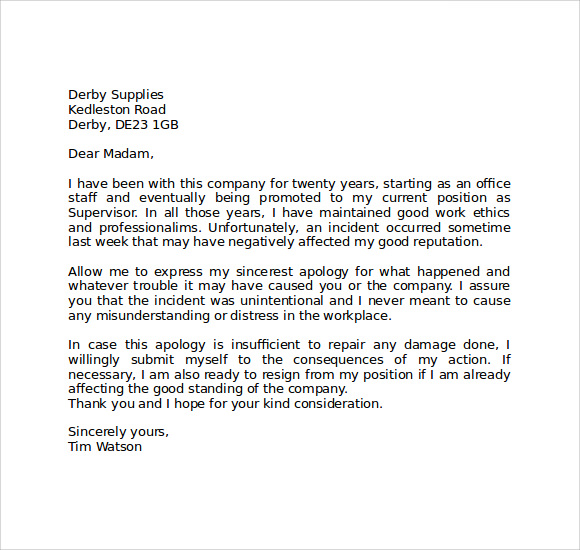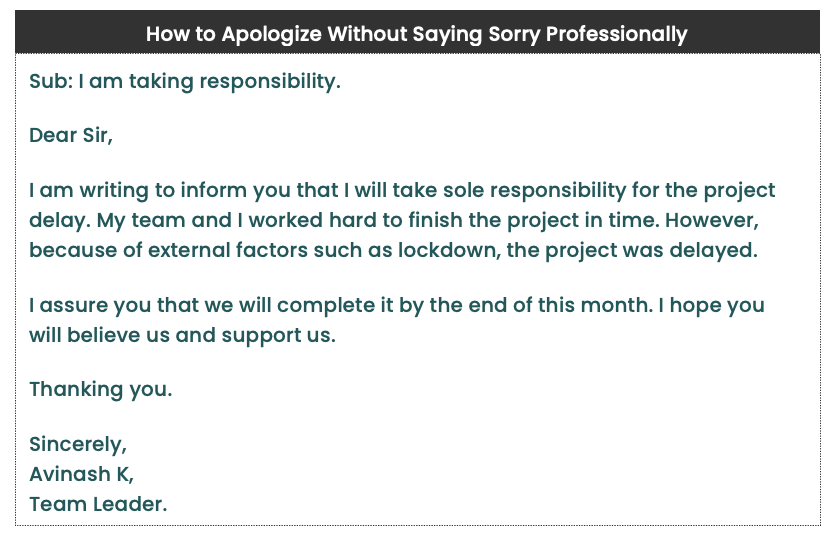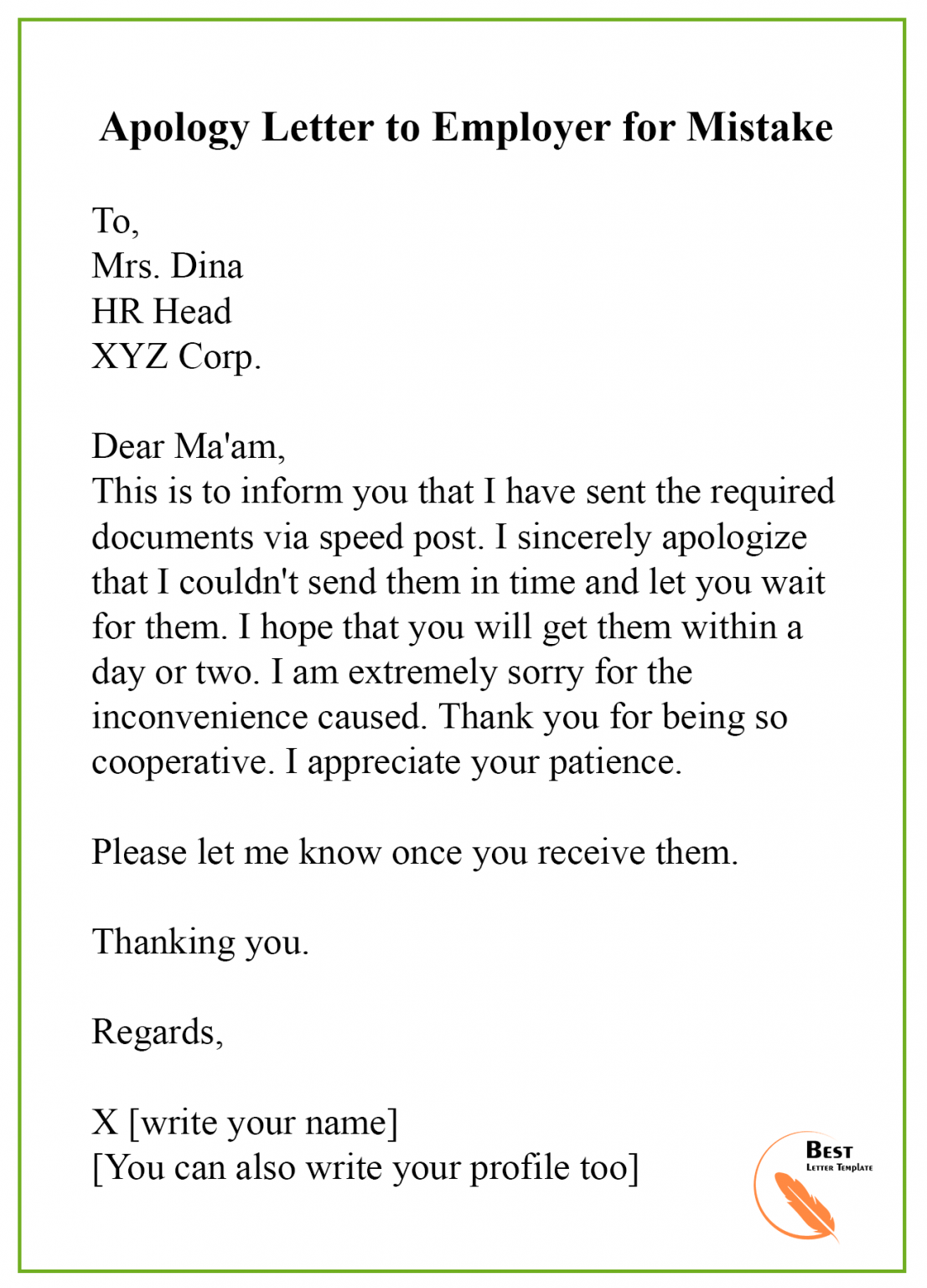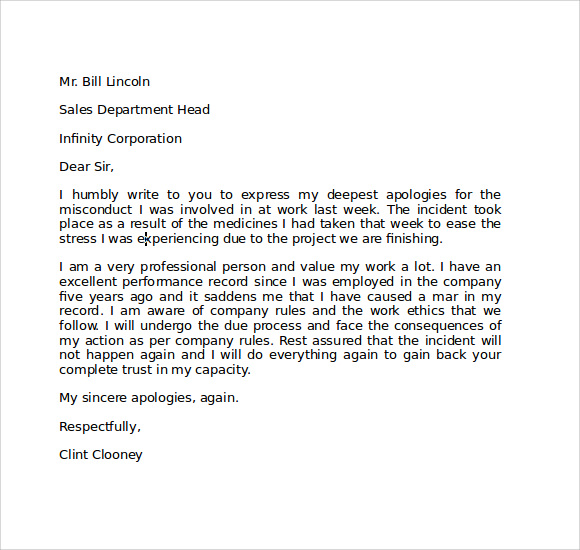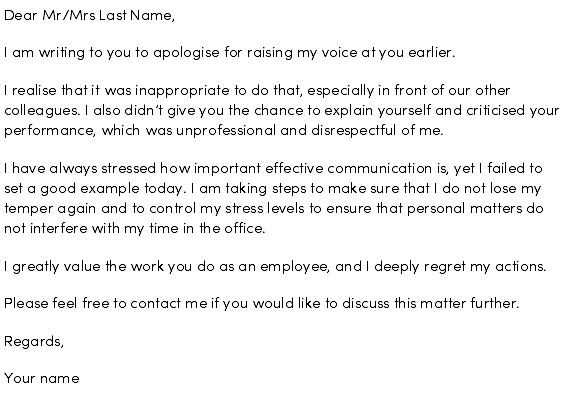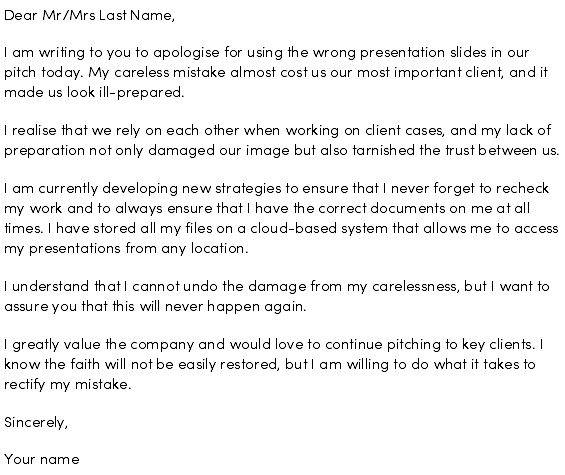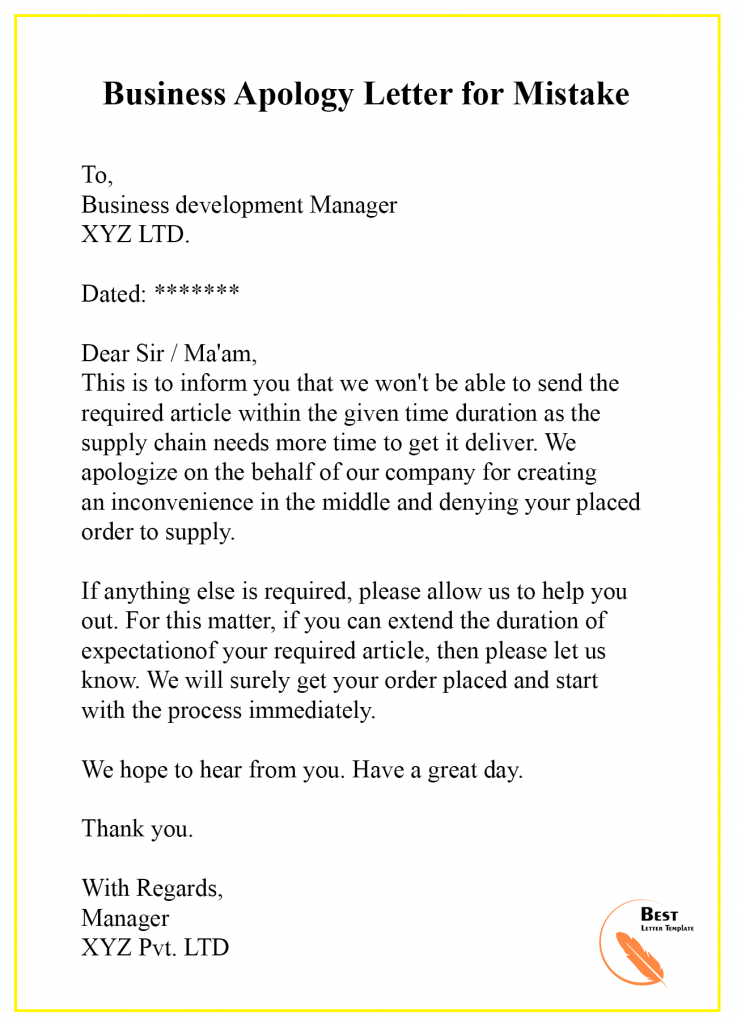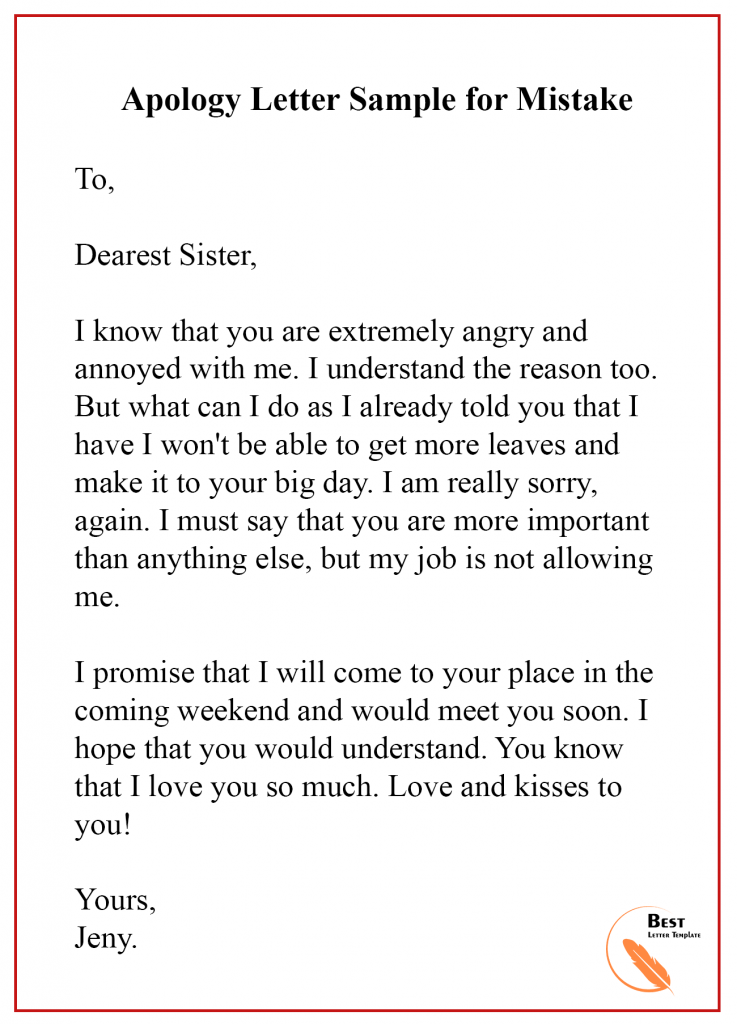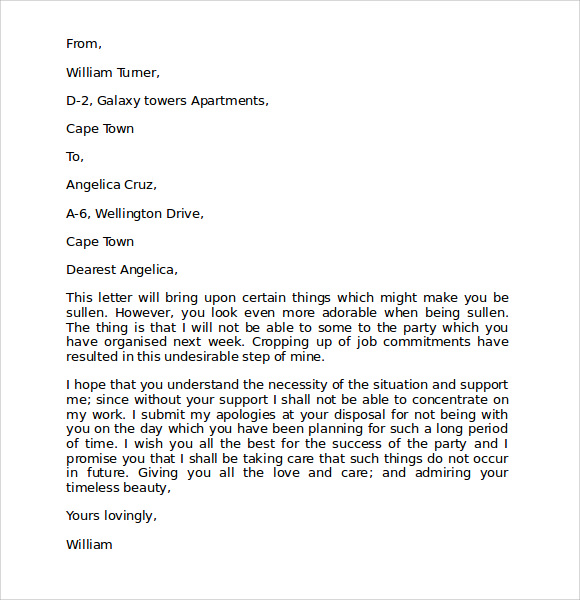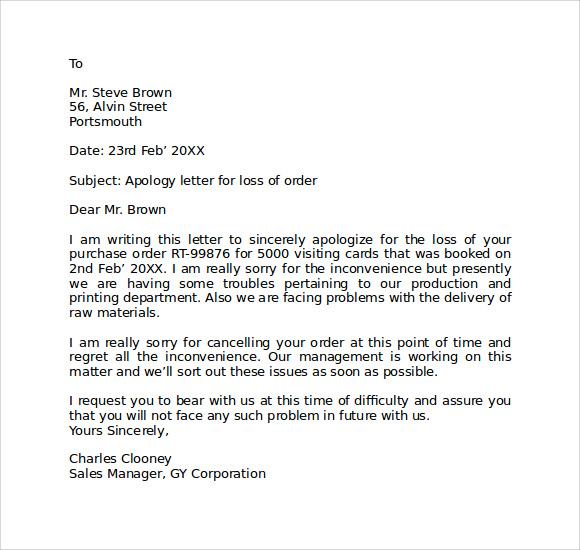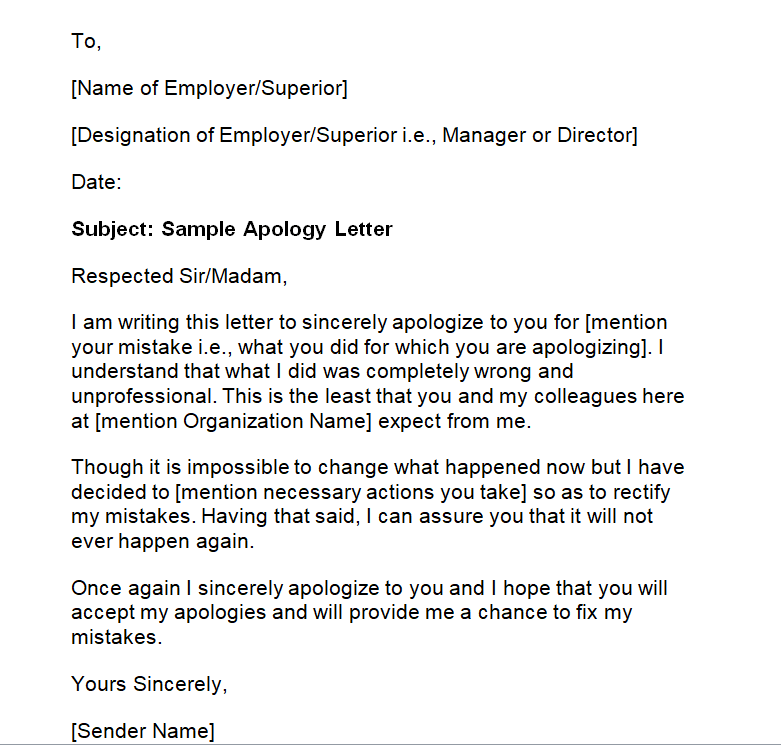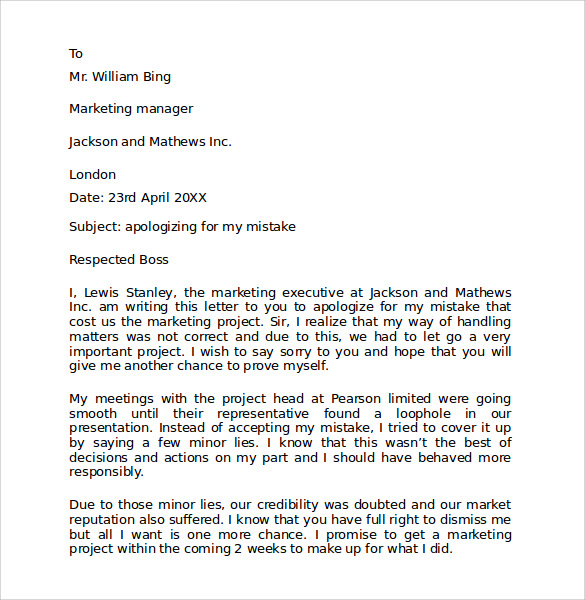How To Say Sorry For A Mistake At Work
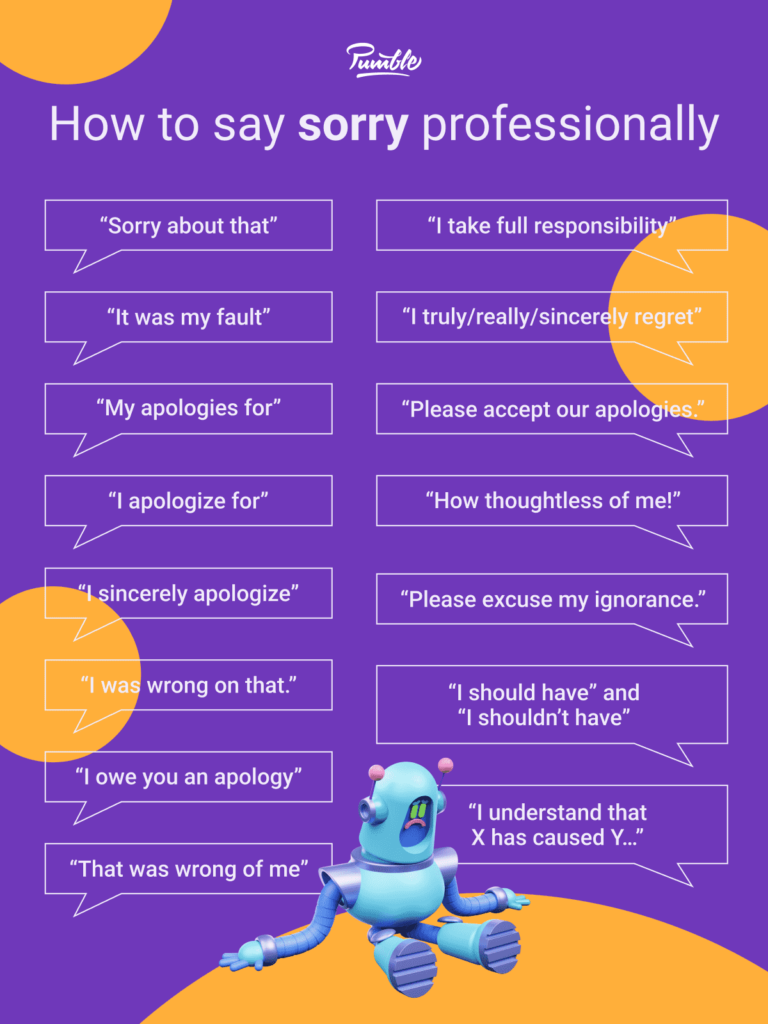
The air in the office hangs thick with unspoken tension. A misplaced report, a missed deadline, a harsh email – the specifics vary, but the feeling is universal: you’ve messed up. A knot of anxiety tightens in your stomach as you replay the events in your mind.
Knowing how to apologize effectively for a mistake at work can feel daunting, but a sincere and well-delivered apology can repair damaged relationships, rebuild trust, and even strengthen your professional reputation.
At its core, a good apology acknowledges the mistake, expresses remorse, accepts responsibility, and offers a solution. It demonstrates accountability and a commitment to learning and growth.
Understanding the Importance of a Genuine Apology
We've all been there. Making mistakes is a part of being human, but it’s how we handle those mistakes that truly defines us. A study by the Society for Human Resource Management (SHRM) highlights that employees value honesty and integrity in their leaders, and this extends to colleagues as well.
A genuine apology signals that you are aware of the impact of your actions and that you care about the feelings of those affected. Avoiding blame and defensiveness is paramount.
Instead of saying "I'm sorry, but...", try simply stating "I'm sorry." Focus on the other person's experience and avoid minimizing your role in the situation.
The Four Pillars of an Effective Apology
Crafting a meaningful apology involves several key elements. Let’s break them down.
1. Acknowledge the Mistake: Be clear and specific about what you did wrong. Avoid vague language or trying to downplay the severity of the situation.
For example, instead of saying "I'm sorry if I upset you," say "I'm sorry for missing the deadline on the project report. I understand that this caused delays for the team."
2. Express Remorse: Show that you genuinely regret your actions and that you understand the impact they had on others. Use phrases like "I deeply regret" or "I am truly sorry."
Empathy is key here. Try to understand the situation from the other person's perspective and acknowledge their feelings.
3. Accept Responsibility: Own your mistake without making excuses or blaming others. This shows that you are accountable and willing to take ownership of your actions.
Avoid phrases like "It wasn't entirely my fault" or "If you had only..." These statements undermine your apology and shift blame.
4. Offer a Solution: If possible, propose a way to fix the mistake or prevent it from happening again. This shows that you are committed to making things right and learning from your experience.
This might involve offering to redo the work, taking on extra tasks to compensate, or implementing new processes to prevent similar errors in the future.
Navigating Different Scenarios
The best way to apologize will vary depending on the situation and the people involved. Consider the severity of the mistake, your relationship with the affected parties, and the company culture.
For a minor error, a simple verbal apology might suffice. For a more significant mistake, a written apology may be more appropriate.
In cases where you have damaged a relationship, consider a face-to-face apology. This allows you to convey sincerity and empathy more effectively.
According to *Harvard Business Review*, an effective apology should be timely, tailored, and transparent.
Timing is crucial. The sooner you apologize, the better. Don’t let the situation fester.
The Power of Forgiveness
While offering an apology is essential, it’s also important to remember that forgiveness is a two-way street. Be patient and understanding if the other person needs time to process your apology.
Allow them to express their feelings and avoid getting defensive. Give them the space they need to heal and rebuild trust.
Ultimately, a sincere apology is a powerful tool for repairing relationships and strengthening your professional standing. It demonstrates integrity, accountability, and a commitment to growth. Embrace the opportunity to learn from your mistakes and build stronger connections with your colleagues.
